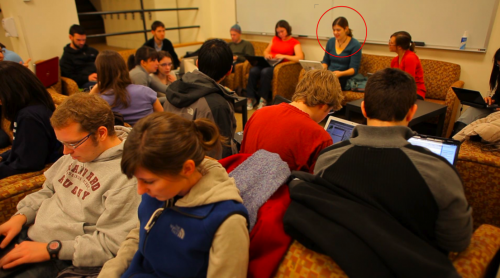Kate Perino is a Sophomore at Tufts University majoring in English. She originates from Maryland.
During winter break, I happened upon a news site mentioning the Fletcher school. The article was about a group of Tufts grad students who got together with their laptops in the aftermath of the Haiti earthquake and began sifting through text messages and Twitter feeds directly from Haiti. They were compiling information for relief organizations, to help them save lives and coordinate resource distribution. In some cases, the students were reporting medical emergencies and actually locating people trapped in buildings. The article said they planned to continue as long as they had volunteers.
